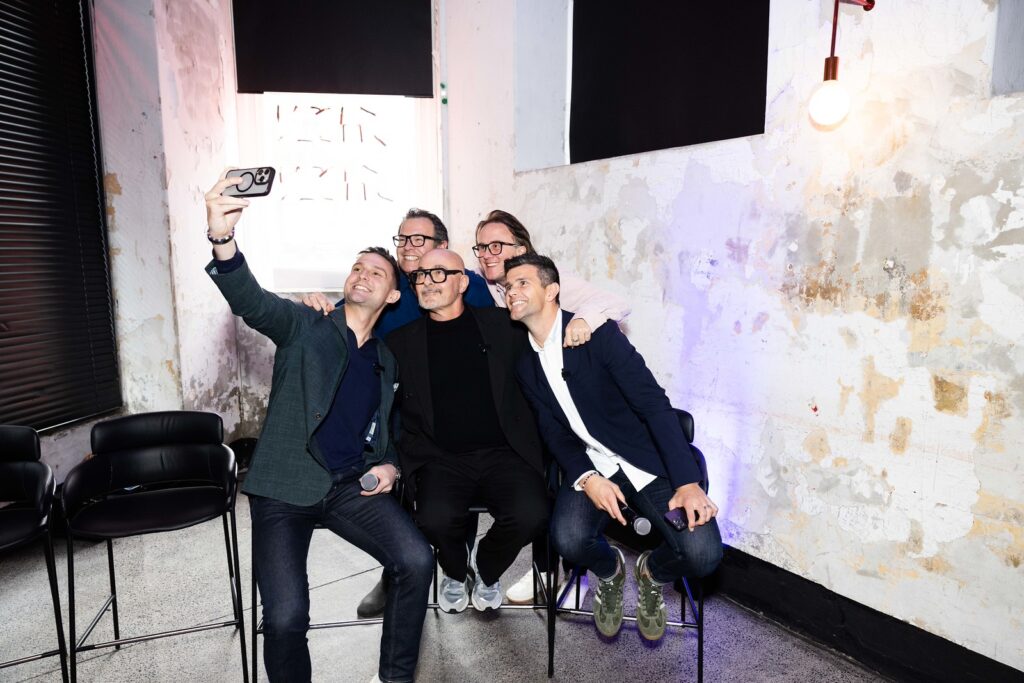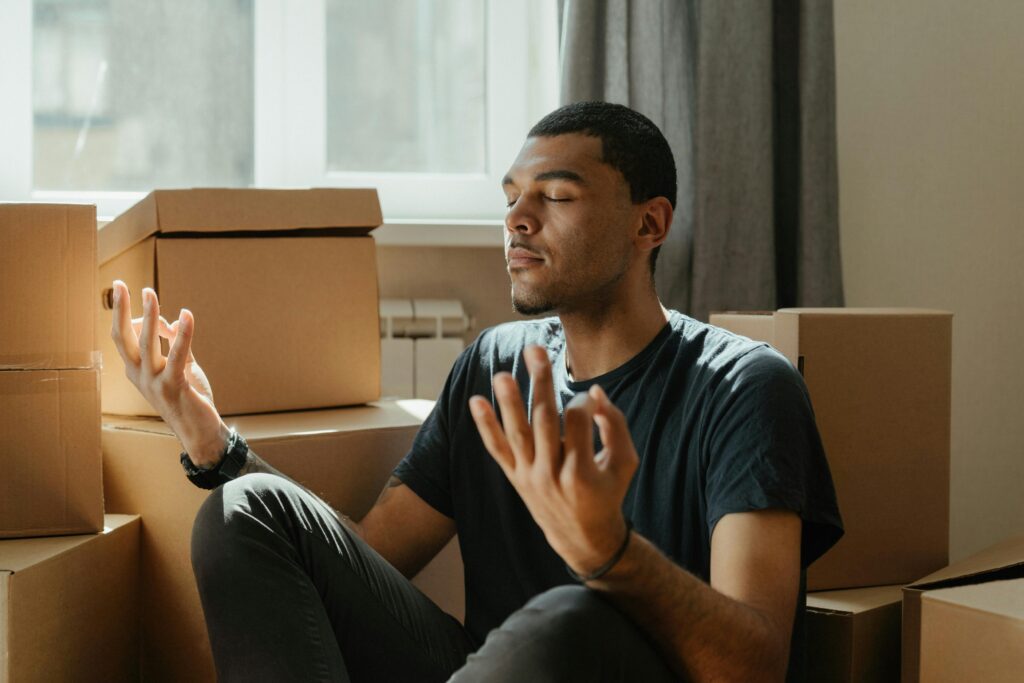WITH MY EYES CLOSED, mind relaxed and body lying supine, I suddenly feel my hand lifting off my bed, seemingly of its own accord. Right before I hypnotised myself for the first time, a pop-up urged me to find an open space in case this happens. I’d been sceptical, waving it off as an overzealous precaution. Sure, I better place a crash mat down too, just in case I do a back flip, I thought to myself. But now I’m beginning to understand the need for vigilance.
A few days before I had my first hypnotic experience with the assistance of an app, Dr David Spiegel, a leading psychiatrist, brain expert, and creator of self-hypnosis app Reveri, told me that it is best to approach hypnotism with an open mind. “In academic terms, this is called expectancy,” he says. “The more motivated you are for hypnosis to work, the better effect it will have.”
Although I was naturally sceptical about the self-help practice, I decided to heed Dr Spiegel’s advice, though I admit, I was approaching it more with curiosity than optimism. Loading into Reveri, I took what is labelled as a ‘hypnotisability test’, which subsequently diagnosed me as ‘highly hypnotisable’. I regarded this information with some dismay, having previously regarded my mind as more of a mental fortress than a hotel with a vacancy sign and a concierge, as the app seemed to be inferring.
The Reveri app says that self-hypnosis can help you work on a number of problems. Sleeping better is one of them. I’m hardly an insomniac, but people who claim they can fall asleep within seconds of closing their eyes astound me and I’ll admit I’m envious of their ability. Plus, there are few people who wouldn’t stand to benefit from a better night’s sleep. It’s for that reason that I selected ‘sleep better’ as my focus point.
Then, settling down into the comfort of my bed for a sleep better exercise, the disembodied voice of Dr Spiegel tells me to close my eyes, look up, and moderate my breathing. Then he tells me to imagine that my left hand is buoyant, floating, weightless like a balloon. Here’s the crazy part: that’s exactly how my hand felt.

Unsplash
While the experience was new to me, hypnosis is not a new concept. Its origins can be traced back to Middle Ages Persia, but it was 18th century Austrian physician Franz Anton Mesmer (who gives his name to the word ‘mesmerised’, not the other way around) who first popularised hypnotherapy, or what he called ‘mesmerism’ or ‘fluidum’, in the Western world.
The therapy slowly became a circus act over the next 300 years, something that was played for laughs at shows and fairs. Dr Spiegel, for one, is not a fan of stage hypnosis. “What I don’t like about stage hypnosis is that it gives far too much credit to the hypnotist, when actually, all hypnosis is self-hypnosis – it’s something you do to and for yourself,” he says. “The hypnotist merely guides you, but really, you are in control.”
Modern perceptions of hypnosis have largely been shaped by these stage performers. The result is that, by and large, society has become dismissive of the very real benefits of hypnosis. Although, the unique challenges of living in a 21st century world have led to many people adopting a more open-minded approach to managing their health. In this space, Dr Spiegel sees hypnosis catching on, as people need it now more than ever.
“Our social and health systems are failing us. People are dealing with a hangover from a global pandemic. In addition, climate crises, a turbulent global economy, civil unrest and mass layoffs are taking their toll on people’s physical and mental health,” Dr Spiegel says. “People are searching for alternative solutions outside of mainstream therapies. I think hypnosis is rising to the challenge.”
The demand Dr Spiegel speaks of is what Reveri was designed to meet. Beyond better sleep, Reveri can help you reduce stress, improve focus, tackle a habit, manage pain, deal with loss, exercise stronger and even overcome fear of flying by unlocking the power of targeted relaxation techniques and focused attention. The app offers personalised sessions crafted to address your specific circumstances. These exercises are designed to be short and sweet, with interactive guidance from Dr Spiegel (the voice of the app) and flexible lengths to maximise convenience and effectiveness.
As Dr Spiegel stresses, hypnosis is not a pseudo-science. Around 20,000 academic articles have been published on clinical hypnosis. Dr Spiegel himself has published more than 200 papers, chapters and books on the topic. But what actually happens during the process of self-hypnosis? Allow Dr Spiegel to explain.
“During hypnosis, brain connectivity is increased between the prefrontal cortex, which plans activity, and the mind-body connection region, which allows you to influence your body to fall asleep quickly, let go of stress or control cravings for smoking, as an example,” Dr Spiegel says. “Hypnosis is simply a state of highly focused attention: putting things outside of conscious awareness that are usually within your awareness so that you can focus on the problem at hand and restructure your mind-body relationship.”
While in a hypnotic state, your attention becomes detached from your physical reality as you focus on inner cognition. Dr Spiegel asserts that this can have considerable benefits by allowing people to “use their mind to soothe their body’s natural reaction to stress, and by allowing them to suspend their usually expectations about themselves and try out being someone different for a while.”
Even if you’re hesitant to give it a go, hypnosis is not something that can have drastic negative consequences, as Dr Spiegel explains. “The worst that can happen is that it doesn’t work. The best that can happen is that you feel much more relaxed, more focused, sleep better, reduce your pain, protect your body from nicotine.”
To answer our original question regarding whether self-hypnosis could be the next big wellness trend, I’ll say that it absolutely has all the makings of one. By experimenting with Reveri and self-hypnosis, I managed to quickly improve my quality of sleep, just by doing the occasional session before bed.
Typically, I’m a restless sleeper who needs a significant time to settle in before lapsing into some decent shut-eye, only to wake multiple times throughout the night. At the very least, self-hypnosis has helped me get into a proper nighttime routine with mental relaxation exercises. That’s the beauty of the therapy, it can impact you as much as you want it to.
With applications across so many different avenues, nearly everyone will have an area where self-hypnosis can help. But whether or not self-hypnosis reaches the mainstream and changes the lives of the masses, I’ll be satisfied with it helping me rest a little easier at the end of the day.
If you’re interested in trying your hand at self-hypnosis, use the code JUNE20 for 20% off a Reveri subscription for the month of June, as well as get seven days free.

Unsplash
Related:
The Wildly Funny Side of Meditation You Need to Try
The power and possibility of psychedelic drugs to treat mental health















